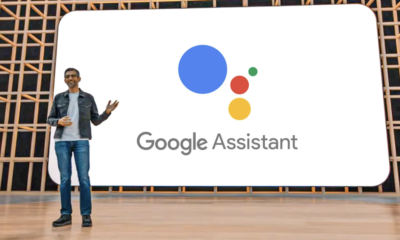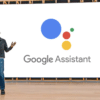Artificial Intelligence
Google Unveils ‘Genie 3’ World Model to Train AI Robots in Virtual Warehouses: A Bold Step Toward AGI
In a significant leap toward Artificial General Intelligence (AGI), Google DeepMind has introduced its latest innovation — Genie 3, a “world model” designed to simulate highly realistic environments where AI systems can learn to perform human-like tasks. From navigating complex warehouse layouts to mimicking outdoor scenarios like skiing, Genie 3 represents a transformative tool for training AI agents in virtual yet convincing recreations of the real world.
Google announced the development of Genie 3 amid intensifying competition in the AI race, as companies like OpenAI edge closer to unveiling their next-generation models, such as GPT-5. But while the spotlight often falls on language models capable of automating white-collar tasks, Google’s Genie 3 focuses on a different frontier: physical world interaction.
World models like Genie 3 allow AI agents — from robots to autonomous vehicles — to learn by interacting with realistic digital environments before being deployed in the physical world. “We expect this technology to play a critical role as we push toward AGI, and agents play a greater role in the world,” said Google DeepMind in its statement.
Although not yet publicly available, Google demonstrated Genie 3’s capabilities by showcasing virtual scenarios of warehouse logistics and outdoor adventures to journalists. The simulations, generated instantly from text prompts, can be altered in real-time — adding obstacles, characters, or even altering physics — all through simple textual commands. This level of flexibility accelerates AI training without the risks or costs associated with real-world trials.
Experts in the AI and robotics field have lauded world models as indispensable for the future of autonomous systems. Professor Subramanian Ramamoorthy, chair of robot learning and autonomy at the University of Edinburgh, emphasized that for robots to make flexible decisions, they must “anticipate the consequences of different actions,” which is precisely what Genie 3 aims to achieve.
Inside Mark Zuckerberg’s Secret AI Dream Team: Meta’s Race to Build Superintelligence
Beyond robotics, Google believes these immersive virtual models can also bolster the capabilities of large language models, enhancing their ability to plan and act on human commands. Unlike static datasets, world models introduce a dynamic environment where AI can refine decision-making skills in contextually rich settings.
While AGI (Artificial General Intelligence) — where machines rival human cognitive abilities — remains a distant goal, innovations like Genie 3 signal a foundational shift in how AI systems will learn and adapt. Google did not provide a release date for public access to Genie 3, citing current limitations, but emphasised its pivotal role in future AI development.
As AI agents inch closer to operating in real-world scenarios with human-like precision, tools like Genie 3 could be the training grounds where the next generation of intelligent machines is born.













































Pingback: OpenAI’s GPT-5 Is Smarter Than You Think—Sam Altman Confirms
Pingback: Google Pixel 10 leaked – And It’s a Total Game-Changer